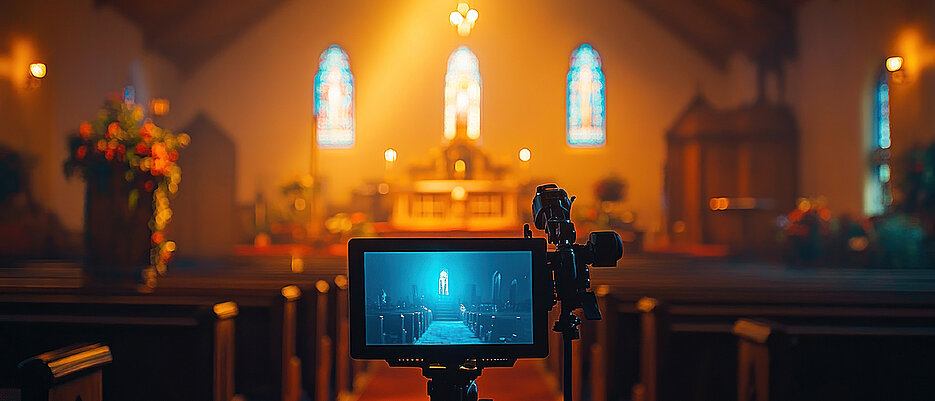Religious Empowerment in the Digital Age
07/06/52Research teams from the University of Würzburg and Bremen are investigating the relationship between humans, religion and artificial intelligence in an interdisciplinary network.

Church services have been regularly broadcast online since the coronavirus pandemic at the latest. Religious communities have been using social media for their communication for many years. And the first robots are already being used in religious contexts. There is no question that religious practices are now closely interwoven with digital media technologies.
"These developments raise fundamental questions," says Professor Ilona Nord. The religious education teacher holds the Chair of Protestant Theology II at Julius-Maximilians-Universität Würzburg (JMU). In a new research project, she is looking for answers to these questions together with other participants from Würzburg and Bremen.
Fundamental Questions about Human Agency
The project is part of the DFG research network CARD (Conceptualizing Agency, Religion and Digitalisation); Ilona Nord is leading the project together with Kerstin Radde-Antweiler, Professor at the Institute for Religious Studies at the University of Bremen. The three-year interdisciplinary project is researching how religious agency is changing in times of digitalisation and what role artificial intelligence plays in this.
"Advancing digitalisation poses fundamental questions about human agency," explains Ilona Nord. "If algorithms and AI systems increasingly act autonomously, we have to rethink what agency, i.e. the ability to act, means," adds Kerstin Radde-Antweiler. This applies in particular to the religious sphere, which has been little researched to date.
Religious Practice in the Digital Transformation
"Can non-human actors such as AI systems have, maintain or be granted religious authority? How do the ideas of the relationship constellations between humans and God change when machines are involved in them?" It is questions like these that the participating researchers will be addressing in the coming years.
The main aim of the network is to develop a common theoretical basis for the conceptualisation of agency in the context of religion and digitalisation. The results will be published in a handbook comprising three parts: disciplinary perspectives, interdisciplinary dialogues and central concepts such as authority, power and empowerment.
In addition, CARD serves as preparation for a larger international research project planned from the end of 2028. "We are creating the conceptual basis for the next generation of research on religion and digitalisation," say the two researchers.
International Collaboration and Promotion of Young Researchers
The CARD network brings together researchers from 13 different disciplines for the first time, including theology, religious studies, philosophy, sociology, media studies, computer science and psychology. In addition to German universities, international partners from the USA, Sweden, Norway and the Netherlands are also involved.
"A particular focus is on promoting young researchers," emphasises Radde-Antweiler. Six young researchers are integrated into the network as full members and are actively involved in shaping the research. The project also aims to increase the visibility of German-language research in this international field. To this end, the network is planning workshops at which renowned international experts will participate as guests.
Jörn Hurtienne (Human Computer Interaction), Florian Krückel (Pedagogy), Frederek Musall (Jewish Studies) and Caroline Wienrich (Computer Science) from the University of Würzburg will be taking part.
Contact
Prof. Dr Ilona Nord, University of Würzburg, Faculty of Human Sciences,
T: +49 931 31-89790, ilona.nord@uni-wuerzburg.de
Prof Dr Kerstin Radde-Antweiler, University of Bremen, Institute for Religious Studies,
T: +49 421 21867911, radde@uni-bremen.de






